AESA PROGRAMMES
- Building R&D Infrastructure
- Developing Excellence in Leadership, Training and Science in Africa (DELTAS Africa)
- Human Heredity and Health in Africa (H3Africa)
- Africa’s Scientific Priorities (ASP)
- Innovation & Entrepreneurship
- Grand Challenges Africa
- Grand Challenges Innovation Network
- Rising Research Leaders/Post-Docs
- AESA RISE Postdoctoral Fellowship Programme
- African Postdoctoral Training Initiative (APTI)
- Climate Impact Research Capacity and Leadership Enhancement (CIRCLE)
- Climate Research for Development (CR4D)
- Future Leaders – African Independent Research (FLAIR)
- Critical Gaps In Science
- Clinical Trials Community (CTC)
- Community & Public Engagement
- Mobility Schemes: Africa-India Mobility Fund
- Mobility Schemes: Science and Language Mobility Scheme Africa
- Research Management Programme in Africa (ReMPro Africa)
- Science Communication/Africa Science Desk (ASD)
- Financial Governance: Global Grant Community (GGC)
- AAS Open Research
- CARI Programmes
- Evidence Leaders Africa (ELA)

The Governing Council
The AAS is governed by :
Members of the Governing Council

Prof Dakora obtained his BSc (Hons) degree in Agriculture from the University of Ghana in 1977, an MSc degree from the University of Sydney, Australia, in 1981, and a PhD in Botany from the University of Western Australia, Perth, 1989. He currently holds a South African Research Chair in Agrochemurgy and Plant Symbioses at the Tshwane University of Technology, South Africa; and is Fellow and President of the African Academy of Sciences. In 2012, he won the UNESCO-Equatorial Guinea International Prize for Research in the Life Sciences, and the African Union Kwame Nkrumah Science Excellence Continental Award in 2016. He is a Member of the Academy of Sciences of South Africa, Fellow of the Royal Society of South Africa, and TWAS Fellow. He currently serves as Adjunct Professor to the University of Western Australia for the period June 2012 to May 2021. Prof Dakora’s research has contributed to our current understanding of the signalling and protectant roles of legume molecules such as flavonoids, alkaloids, amino acids, terpenoids and isoflavonoid phytoalexins, as well as of rhizobial metabolites such as lumichrome, riboflavin and indole acetic acid, especially in plant functioning and the expression of bacterial nodulation genes. His research has i) identified legume species and their associated microsymbionts that can serve as biofertilizers for cropping systems in Africa, ii) selected legume varieties and super-smart soil microbes that are tolerant of drought, low pH, high salinity and high temperatures for use in a climate change scenario, and iii) isolated native soil rhizobia that promote increased trace element uptake and accumulation in food legumes for overcoming micronutrient deficiency in Africa. Prof Dakora has published 427 papers (which comprise 119 peer-reviewed journal articles, 16 Book Chapters and 292 peer-reviewed Conference papers/abstracts) and a Book entitled: “Biological Nitrogen Fixation: Towards Poverty Alleviation through Sustainable Agriculture” published by Springer. He has an individual H-index of 33, and his work has been cited 4876 times by peers in the discipline. Prof Dakora is passionate about capacity building, and has trained 44 postgraduate students (27 master’s and 17 doctoral) from 14 African countries.
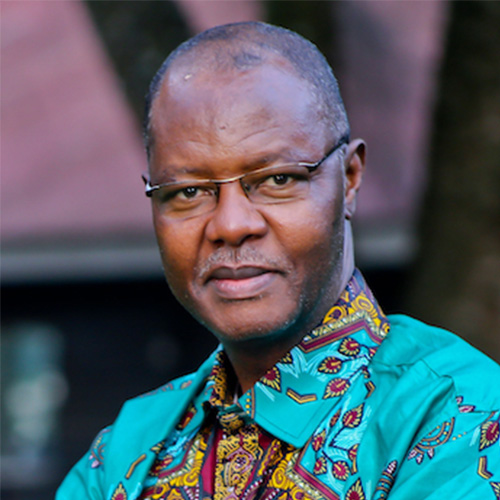
Prof Nyasse is a full University Professor of Organic Chemistry with special interests in Medicinal Chemistry and Natural Products Chemistry into which, he has published many articles in peer-reviewed journals. Prof Nyasse is the Head of the Promotion of Academic Research at the Ministry of Higher Education of Cameroon and Head of the Laboratory of Medicinal Chemistry, Faculty of Science, the University of Yaounde where is working on selective inhibitors of the glycolytic pathways in the Trypanosomatideae which provoke Sleeping sickness and Chagas Disease. In this context, Prof Nyasse has developed new selective inhibitors with known mechanisms of actions either by synthesis or from extraction from medicinal plants of Cameroon. Prof Nyasse in addition to his daily duties as a lecturer and research management is also a member of many scientific bodies: He serves as a Scientific Adviser to International Foundation for Science (IFS), Scientific Adviser to WHO/TDR & ANDI (African Network for Drug & Diagnostics Innovation), Focal point of GIBEX (Global Institute for BioExploration), Lead Trainer of Trainers of AWARD (African Women in Agricultural Research and Development), Consultant to WIPO (World Intellectual Property Organization) and OAPI (Organisation Africaine de la Propriete Intellectuelle). He is also member of the Adviser committee of PRD College (Poverty related Diseases) and Global Health Systems; Member of American Chemical Society; Member of European peptide Society, Prof Nyasse is author of many publications dealing with pure synthetic chemistry, Medicinal Chemistry and Intellectual Property as evidenced by the attached list of his articles. The results from these publications have contributed in the formulation of local drugs such as Hepasor, Camzin and in the protection of some plants species that otherwise would have been destroyed.
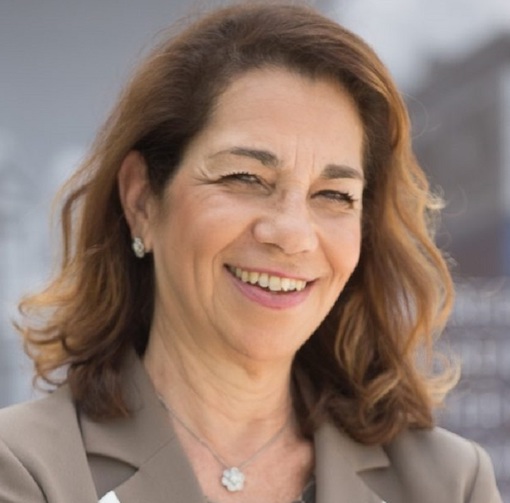
Dr. Akissa obtained the Degree of Agronomist in 1977 at the National High School of Agronomy of Toulouse in France, became Doctor-Engineer in “Sciences and Techniques in Vegetable Production and Quality Products” in 1982 at “Institut National Polytechnique” of Toulouse – France.
She obtained her PhD in Science in 1995 from the Institute of Science and technology of Lund University – Sweden. Her previous positions include: Researcher, Master of Research Program, Manager of the Laboratory, Lecturer, Director of research in Tunisia and Director for Africa International Water in Sri Lanka.
Currently, she is Director and Chief of Laboratory Research for Agricultural Engineering of Ministry of Agriculture. Her research interests include: agricultural use of marginal waters, sewage sludge and their impacts on the environment.
Her honours and awards include: Guinness awards for Scientific Achievement, King Baudoin of Sweden Award, and Kuwait Prize. She is a member of IWMI Board of Governors, TWAS Fellow, member of the International Water Academy of Oslo. She has 31 publications and 62 notes and reports.
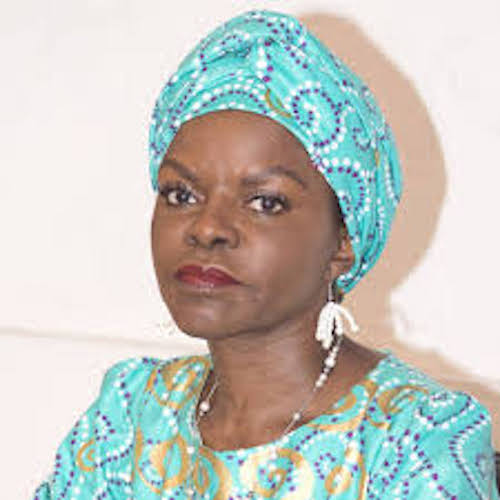
|
Ntoumi has spent the past 15-20 years in developing health research capacities in Africa in general through the Multilateral initiative on Malaria that she led from 2007-2010 and then in Central Africa since 2010 by leading the Central Africa network on Tuberculosis, HIV/AIDS and Malaria and the Congolese foundation for medical research in the republic of Congo. She established this institution in the republic of Congo in 2008 and today it is the most efficient (publications and grants record and infrastructure) and organized health research institution in the country. This leadership has been recognized nationally, regionally and internationally. |
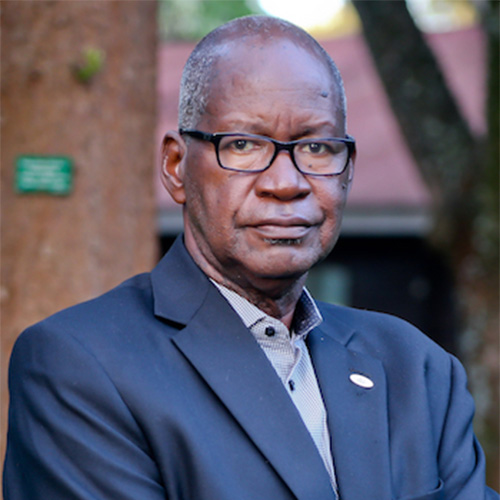
Prof Sabiiti obtained his M.Sc. in 1980 from Makerere University (Uganda) and PhD in 1985 from the University of New Brunswick (Canada). He then joined Makerere University and rose through the ranks to become full professor in 1998. His research interests include agricultural sciences, livestock farming and sustainable rangeland management. He has established the public university called “Gulu University”, vetted the establishment of Busoga University with Swedish Institutions and worked as member of the joint Commission for the setting up of the University of Agriculture and Environmental Sciences in Uganda. He has been Head of Crop Science Department of the University, Dean of the Faculty of Agriculture and Forestry of Makerere University, National Coordinator of the Faculties of Agriculture and Veterinary Medicine for the implementation of the SIDA project on dry-land husbandry. He has served as member of the Advisory Committee for the Pastoral Information Network Programmes. He is a member of TWAS, Tropical Grassland Society of Australia. He has several national, regional and international awards and recognitions and has published 100 articles.
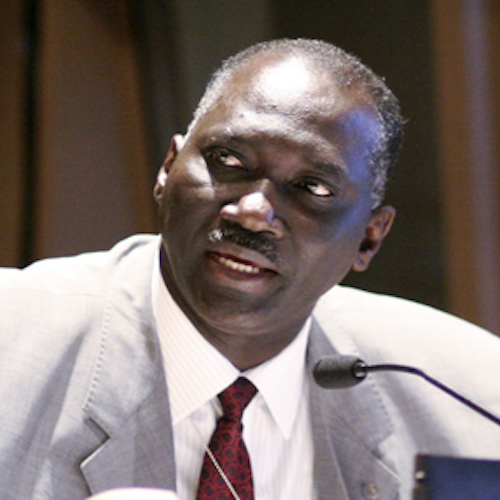
Professor Salif Diop has worked at the United Nations, in UNEP’s Division of Early Warning and Assessment (DEWA), for the past 16 years as Senior Officer. His water expertise is in coastal oceanography, freshwater assessment, aquatic and marine issues, sustainable management and development. He earned a Third Cycle Doctorate in 1978 from The University Louis Pasteur in Strasbourg, France, and a State Doctorate in 1986. He served a yearlong sabbatical as a Senior Fulbright Scholar in the Division of Biological and Living Resources at The Rosenstiel School of Marine and Atmospheric Sciences of the University of Miami, Division of Biological and Living Resources, in 1986/87. He is a member of multiple expert and working groups, including at numerous scientific and research institutions. He has published more than 60 peer reviewed articles and seven books as main author or co-author, and was awarded a Nobel Peace Prize Certificate in 2007 for his contributions to the IPCC. In addition to his research articles, he has also contributed 170 technical documents, research reports, monographs, theses, abstracts and book reviews. He is a University Professor, and has served as one of the Vice-Chairs of the International Lakes Environment Committee Foundation (ILEC) Scientific Committee since November, 2016 and member since Sept 2019 of the High Level Panel Expert Group for a Sustainable Ocean Economy; Sustainable Ocean Initiative of the World Resources Institute. He was named a Member of the National Academy of Sciences and Techniques of Senegal in 2006, a Member of the African Academy of Sciences (AAS) in 2009 and a Member of The World Academy of Sciences for the Advancement of Sciences in the Developing Countries (TWAS) in October 2010. Personal website: http://www.esalifdiop.org
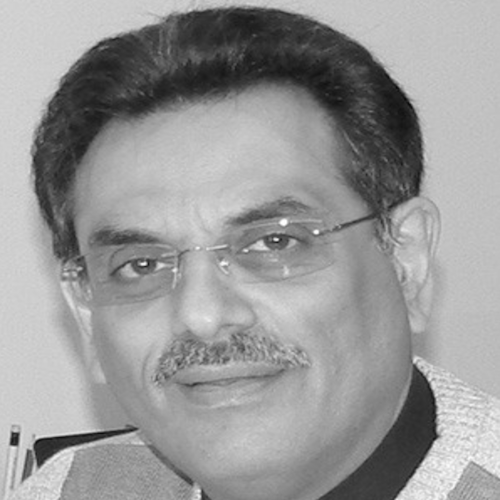
Professor Parker is Emeritus Professor and Senior Research Scholar in Medical Biochemistry and Structural Biology at the University of Cape Town (UCT). He is the founding Director of the Cape Town Component of the International Centre for Genetic Engineering and Biotechnology (2007-2016). Prior to accepting this position, he was the Director of Research for the Health Science Faculty at UCT.
He obtained his PhD in Biochemistry at UCT, completed a postdoctoral fellowship in the USA and returned to join the Department of Medical Biochemistry in 1981 where he eventually became a full Professor and Head of Medical Biochemistry. He was awarded an MRC Oesophageal Cancer Research Unit in 1998 and the DST/NRF Research Chair in Cancer Biology in 2007.
He is a past President of the South African Society of Biochemistry and Molecular Biology (SASBMB), Secretary General of the Federation of African Societies of Biochemistry and Molecular Biology and served on the Executive Committee of the International Union of Biochemistry and Molecular Biology. He serves on the International Scientific Advisory Committees of the UNESCO International Centre for Biotechnology at the University of Nsukka in Nigeria and the UNESCO Biotechnology Centre in Tripoli, Libya and serves as a Peer Reference Group Member for the International Science Programmes (Sweden).
Professor Parker is a fellow of the Academy of Science of South Africa (ASSAf) and served as General Secretary (2000-2004) and Vice President (2010-2016) and currently serves as Chair of the ASSAf Biosafety and Biosecurity Committee. He is a fellow of The World Academy of Sciences (TWAS) and the African Academy of Sciences.
He is a recipient of the National Science and Technology Forum Award for "Outstanding Contributions in Science, Engineering and Technology", the SASBMB Gold Medal for his contributions to Biochemistry and the Oettle Medal by the Cancer Association of South Africa for significant contributions to cancer research.

Dr. Mahama Ouedraogo
Director, African Union Commission for Human Resources, Science and Technology
View Profile
Mahama Ouedraogo holds a PhD in plant breeding from Texas A&M University. He served as acting Director of the Semi-Arid Food Grain Research and Development and Executive Secretary of the African Union Scientific Technical and Research commission. He is currently the head of science and Technology division and acting director of the department Human Resources Sciences science and Technology (HRST), of the African Union Commission. In these capacities he oversees the implementation of various African Union decisions on Science and technology, including the Science Technology and Innovation strategy for Africa (STISA-2024); the African Space Policy and Strategy, and the Pan African University.
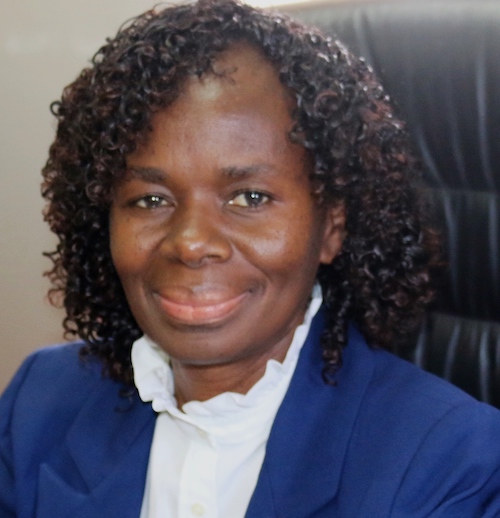
Mary Oyiela Abukutsa-Onyango (born 20 February 1959) is a humanitarian and agricultural scientist from Kenya who specializes in olericulture, agronomy, plant physiology. Abukutsa-Onyango is a professor of horticulture at Jomo Kenyatta University of Agriculture and Technology whose work focuses on African indigenous food crops.Abukutsa Onyango has studied how African indigenous vegetables can be used to combat malnutrition in Africa while maintaining a secure form of revenue even during more challenging weather and climate.
She attended Ematsuli Primary School from 1966 to 1972 in Emuhya, Kenya. She later attended Bunyore Girls High School from 1973 to 1976 in Wekhomo, Kenya and Ng’iya Girls High School in 1977 in Ng’iya, Kenya. She obtained a Bachelors of Science in Agriculture in 1983 from the University of Nairobi. She received her Masters of Science in Agriculture in 1988 from the University of Nairobi. Finally, she received her Doctor of Philosophy in Olericulture, Plant Physiology and Nutrition in 1995 from Wye College, University of London.
Abukutsa-Onyango’s interest and appreciation of indigenous African vegetables was sparked by an allergy to animal proteins she had as a child. This led her to pursue a career in agriculture as she wanted to unravel the potential hidden in African indigenous vegetables. She has been involved in research of African indigenous vegetables since 1990 on an academic level and a practical level with farmers. She surveyed Kenya’s indigenous plants to investigate the viability of seeds used by farmers. Her research has changed and she focuses on the nutritional properties of vegetables. Her research has shown that amaranth greens, spider plant, and African nightshade contain substantial amounts of protein and iron and are rich in calcium, folate, and vitamins A,C, and E. The cooking of these vegetables as studied by Abukutsa-Onyango could help combat malnutrition in Africa as they provide necessary nutrients and proteins to those who cannot afford meat.
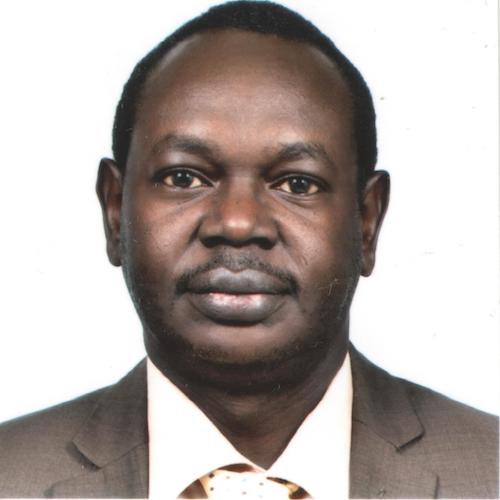
Daniel Olago is Associate Professor at the Institute for Climate Change and Adaptation, and the Department of Geology, University of Nairobi. His current research interests focus on the interactions of groundwater, surface water, climate, environment and human linkages with a special focus on eastern Africa. He is widely published with over 100 research articles, book chapters and edited books. In 1998 he won the International START Young Scientist Award for an international journal published research paper (Global and Planetary Change Vol. 26 /1-3: 159-171), and was also a Lead Author in the Intergovernmental Panel on Climate Change Fourth Assessment Report that won the Nobel Peace Prize for 2007. He has been involved in multi-disciplinary research projects, training, capacity building activities and consultancies on global environmental change and its societal and natural resources impacts in sub-Saharan Africa for over 25 years, and has wide experience in capacity strengthening in local, regional and international contexts for a diverse range of stakeholders, from grassroots, through management to policy-making groups and government agencies. He is presently running or is involved in projects that centre around water security in relation to climate change and society, sustainable cities, natural capital assessments & environmental impacts of development corridors, and the palaeoclimatology of the East African region. Currently, Daniel is Chairman, Network of African Science Academies (NASAC) Water Programme Steering Committee and a member of INQUA-SACCOM Advisory Committee, and Associate Editor of the Frontiers journal Water and Climate Change, and is the founding Editor of the Africa Journal of Physical Sciences of the University of Nairobi. He has been a Member, International Lake Environment Committee (ILEC) from 2007 to 2020, among other international scientific committees over the past 25 years. Daniel has the following professional affiliations: Fellow of the African Academy of Sciences (FAAS); Fellow of the Geological Society of Kenya (GSK); Member of the Kenya National Academy of Sciences; Registered Geologist, Geologists Registration Board (GRB); Registered Hydrogeologist, Ministry of Water and Irrigation; Lead Expert, National Environment Management Authority; Member, Environment Institute of Kenya. Daniel has provided consultancy both locally and abroad for a wide variety of clientele in the areas of climate change, resource assessments and management, and environmental impact assessments and audits for various sectors and industries such as in oil and gas, construction, mineral exploration and extraction, surface and ground water, and energy.
The Governing Council
This is the Board of Directors of The African Academy of Sciences. It consists of 11 members elected by the General Assembly. The president of the General Assembly is the Chairman of the Governing Council. The Council exercises oversight on The AAS Secretariat directly as well as through its committees. It is charged with the responsibility of reviewing and assessing the Academy’s programmes to ensure they are in line with the priorities of the General Assembly. It establishes policies and provides strategic thinking. It also conducts the election of new Fellows, prepares the agenda for the General Assembly, reviews and approves the selection of affiliate members and appoints auditors.
Useful Downloads:
- Guidelines for the Nominations of Candidates for Election as Members of the 2020-2023 GC
- Roles and Responsibilities of Governing Council Members
- Roles and Responsibilities of AAS Regional Vice Presidents
- Code of Conduct and Ethics for the Governing Council
- Governing Council Election Rules and Regulations
- AAS Constitution
- AAS Council Charter
- NGOs Comprehensive Guidance Booklet
The Governing Council (GC) has three committees. These are:
Assists the GC in its governance stewardship and oversight responsibilities to ensure that The Academy is governed in line with best practice. More specifically, the Committee identify individuals qualified to become Committee members and recommend to the GC, nominees for appointment; recommend to the GC corporate governance principles and policies applicable to the Academy; vet and recommend to the Board individuals nominated to become Fellows of the Academy; and exercise and perform the authority, duties and responsibilities of the Committee set forth in this charter.
Assists the GC in overseeing The AAS’ scientific programmes, in the development and implementation of the Academy's programme activities and achievement of the Academy’s objectives. The Committee is also responsible for ensuring the Academy has high level advice from individuals with significant expertise in each program managed by The AAS.
In addition to audit, risk and compliance it also has oversight on strategy, Human Resources plan and Financial reporting.
Previous Governing Council
AAS The First 40 Years

Prof. Felix D. Dakora
President
2020-present

Prof. Barthelemy Nyasse
Secretary General
2020-present
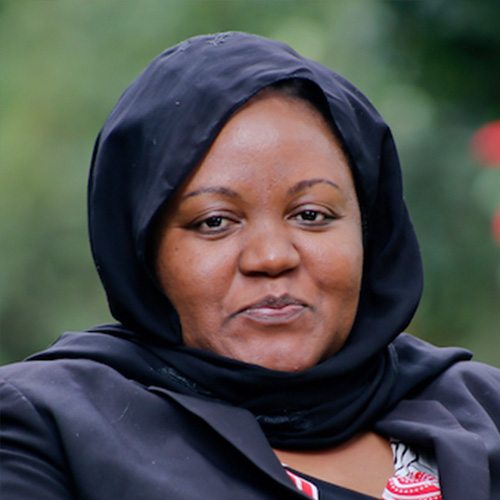
Prof. Amina Abubakar
Treasurer
2020-present

Prof. Elly Sabiiti
VP: Eastern Africa
2020-present
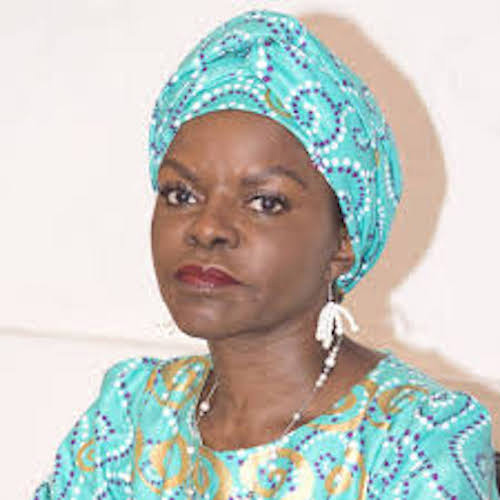
Prof. Francine Ntoumi
VP: Central Africa
2020-present
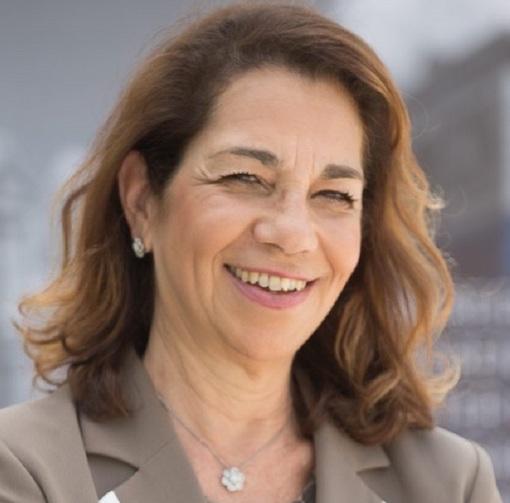
Prof. Akissa Bahri
VP: Northern Africa
2020-present

Prof. Mohamed Iqbal Parker
VP: Southern Africa
2020-present
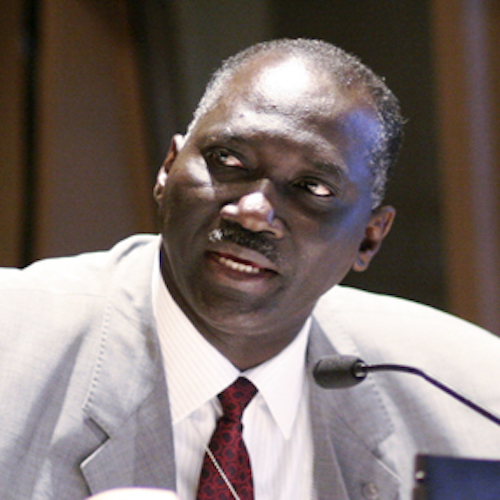
Prof. Salif Diop
VP: Western Africa
2020-present

Ms. Victoria Sabula
General Counsel and Board Secretary
2020-present

Dr. Mahama Ouedraogo
Director, African Union Commission for Human Resources, Science and Technology
2020-present
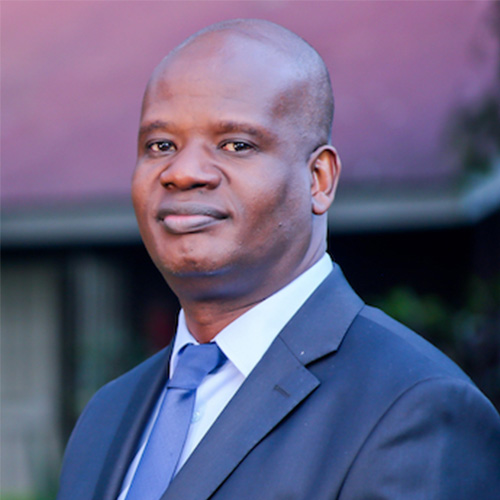
Mr. Fredrick Murunga
Finance, Risk, Audit and Compliance committee
2020-Present

Prof. Felix D. Dakora
President
2017-2020

Prof. Barthelemy Nyasse
Secretary General
2017-2020

Prof. Amina Abubakar
Treasurer
2018-2020
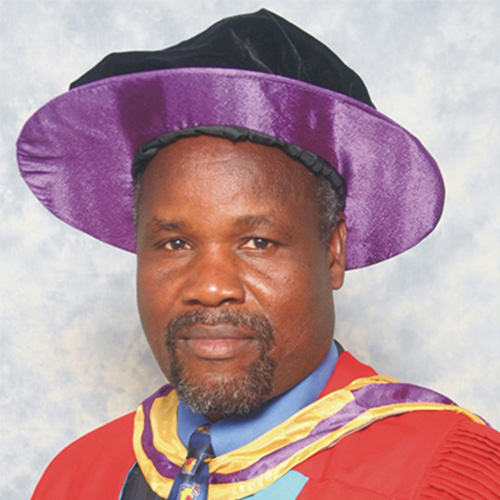
Prof. Dominic Makawiti
Treasurer
2017

Prof. Elly Sabiiti
VP: Eastern Africa
2017-2020

Prof. Vincent Titanji
VP: Central Africa
2017-2020
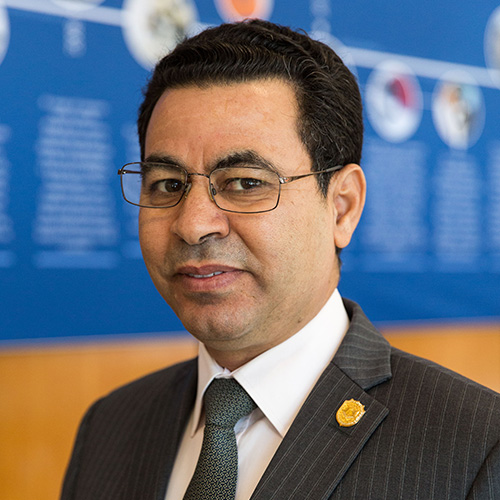
Prof. Mahmoud Abdel-Aty
VP: Northern Africa
2017-2020
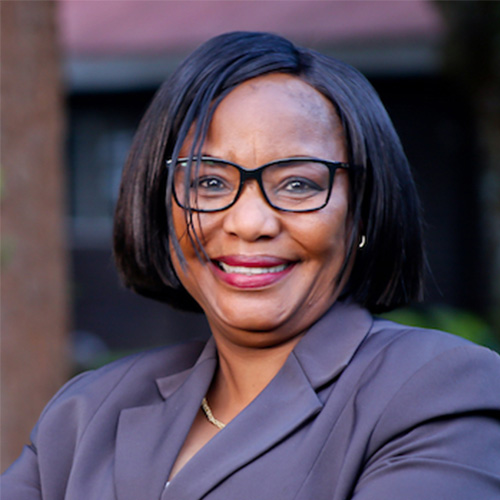
Dr. Boitumelo V. Kgarebe
VP: Southern Africa
2017-2020

Prof. Robert T. Guiguemde
VP: Western Africa
2017-2020

Ms. Victoria Sabula
General Counsel and Board Secretary
2017-2020

Dr. Mahama Ouedraogo
Director, African Union Commission for Human Resources, Science and Technology
2017-2020

Mr. Fredrick Murunga
Finance, Risk, Audit and Compliance committee
2017-Present
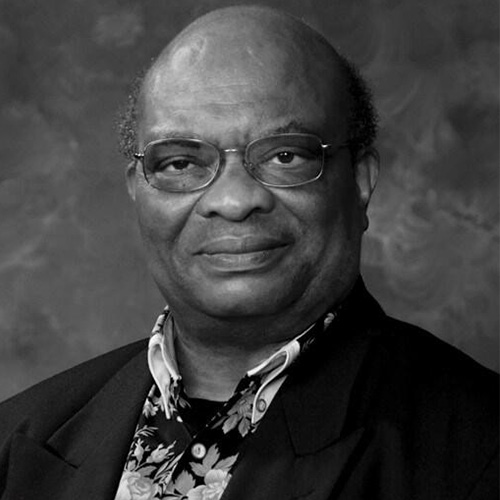
Prof. Aderemi Kuku
President
2014-2016
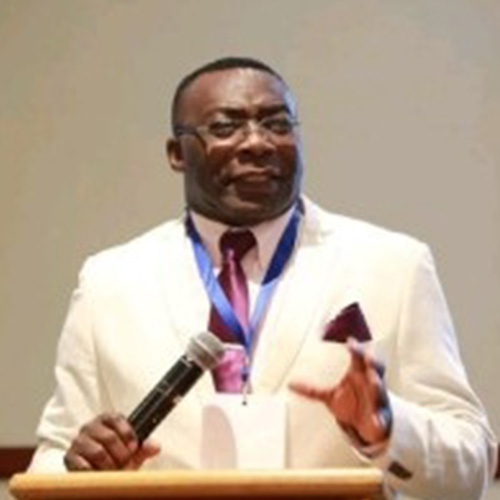
Prof. Georges-Ivo Ekosse
Secretary General
2014-2016

Prof. Dominic Makawiti
Treasurer
2015-2016
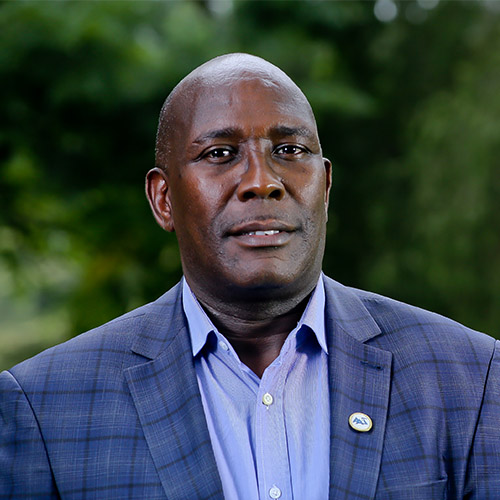
Dr. Thomas Maina Kariuki
Treasurer
2014

Prof. Vincent Titanji
VP: Central Africa
2014-2016

Prof. Thameur Chaibi
Regional Rep: Northern Africa
2014-2016

Dr. Boitumelo V. Kgarebe
Regional Rep: Southern Africa
2014-2016
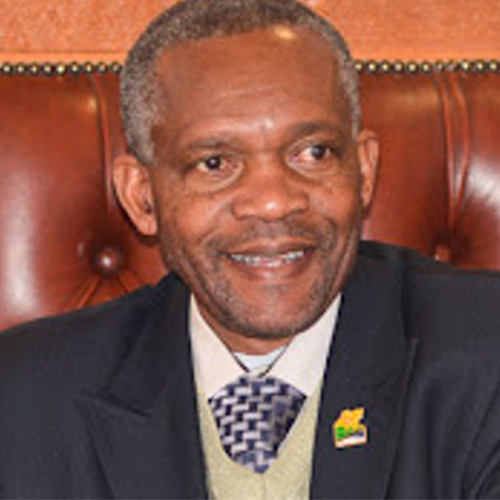
Prof. Burton Mwamila
VP: Eastern Africa
2014-2016

Prof. Mahmoud Abdel-Aty
VP: Northern Africa
2014-2016
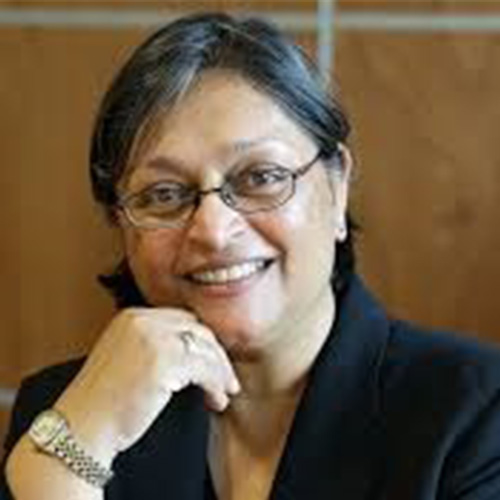
Prof. Quarraisha Abdool Karim
VP: Southern Africa
2014-2016

Prof. Robert T. Guiguemde
VP: Western Africa
2014-2016

Prof. Thomas Silou
Regional Rep: Central Africa
2014-2016

Prof. Aderemi Kuku
President
2014-2016

Prof. Ameena Gurib-Fakim
Regional Rep: Eastern Africa
2014-2016

Prof. Richard Awuah
Regional Rep: Western Africa
2014-2016
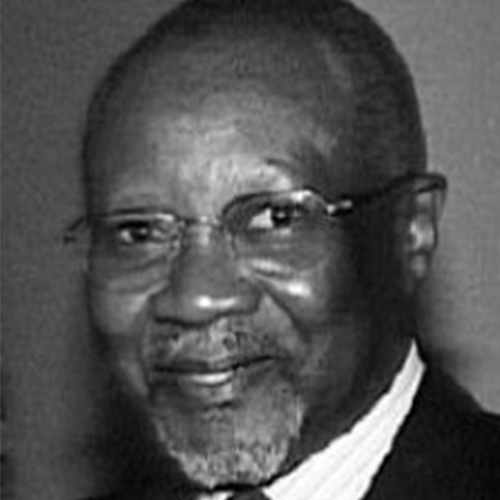
Prof. A. Lamine Ndiaye
President
2011-2013
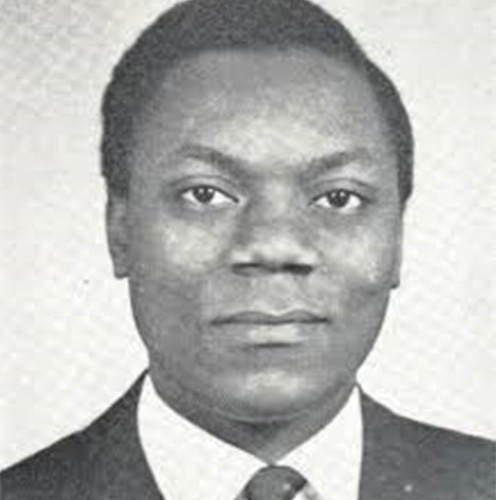
Dr. Shem Arungu Olende
Secretary General
2011-2013

Prof. Joseph Massaquoi
Treasurer
2011-2012

Dr. Thomas Maina Kariuki
Treasurer
2013

Prof. Abdel Shafy Fahamy Obada
VP: Northern Africa
2011-2012
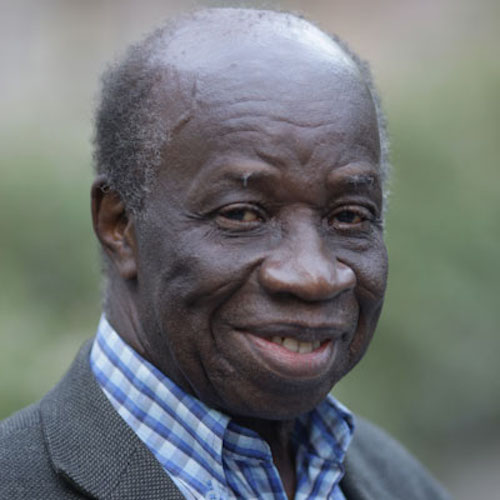
Prof. Francis Allotey
VP: Western Africa
2011-2013

Prof. George Ivo-Ekosse
Regional Rep: Central Africa
2012-2013

Prof. Keto Mshigheni
Regional Rep: Eastern Africa
2011-2013

Prof. Thameur Chaibi
Regional Rep: Northern Africa
2013

Prof. Mohammed Hassan
President
1999-2010

Dr. Shem Arungu Olende
Secretary General
2006-2010
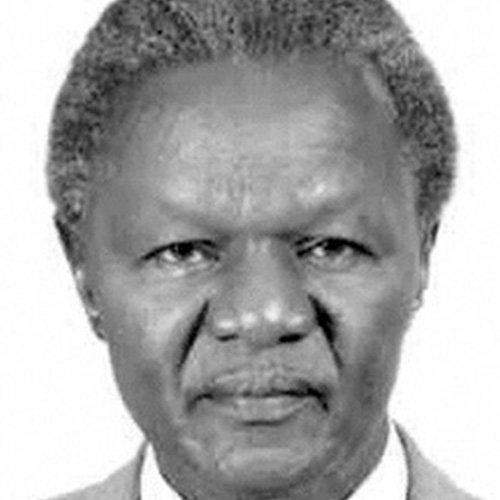
Prof. Gideon. B. Okelo
Secretary General
1999-2005
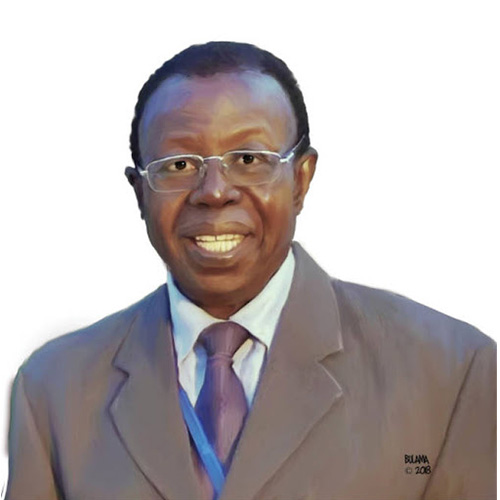
Prof. Turner T. Isoun
Treasurer
1999-2010

Prof. Frederick Kayanga
VP: Eastern Africa
2006
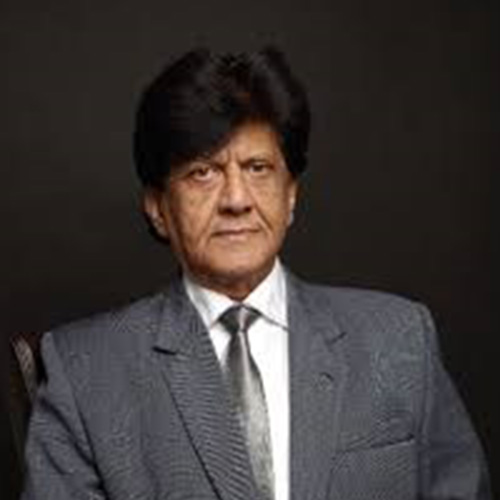
Prof. Abed Peeraly
VP: Eastern Africa
1999-2005

Prof. Abdel Shafy Fahamy Obada
VP: Northern Africa
2006-2010
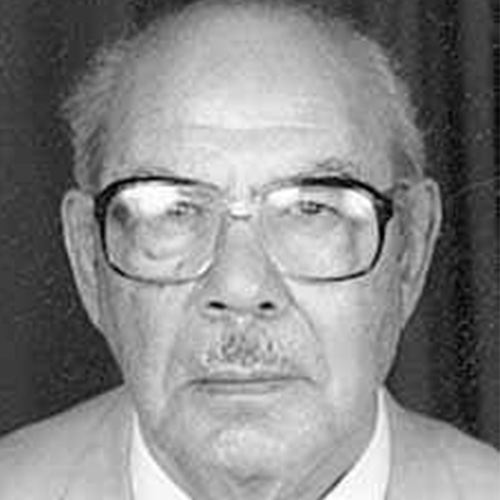
Prof. Attia A. Ashour
VP: Northern Africa
1999-2005
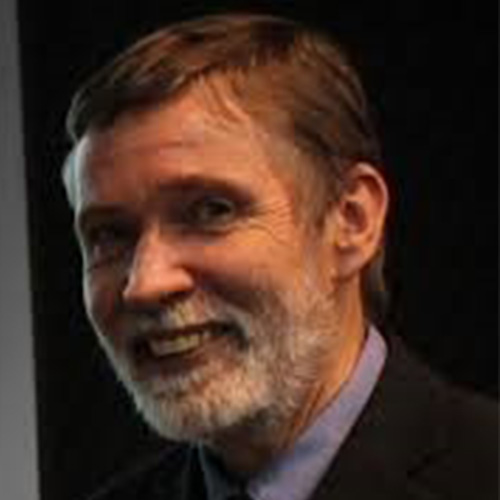
Prof. Paulus Gerdes
VP: Southern Africa
2006-2008
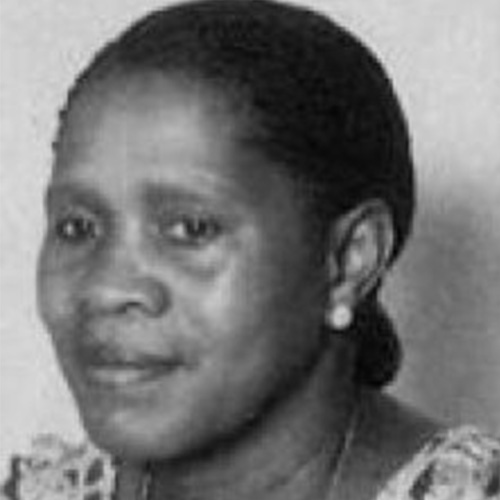
Prof. Lydia Makhubu
VP: Southern Africa
1999-2005

Prof. Francis Allotey
VP: Western Africa
2006-2010

Prof.Rufus Adegboye
VP: Western Africa
1999-2005

Prof. Jean Nya Ngatchou
Regional Rep: Central Africa
2006-2008

Prof. Mohammed Hassan
President
1999-2010

Prof. Keto Mshigheni
Regional Rep: Eastern Africa
2006-2010

Prof. Paul Nkwi
Regional Rep: Central Africa
2006-2010

Prof. Suzanne Ratsimamanga
Regional Rep: Central Africa
2001-2005

Prof. Najia Kbir Ariguib
Regional Rep: Northern Africa
2001-2008

Prof. Emmanuel Edee
Regional Rep: Southern Africa
2006-2008

Prof. C Chetsanga
Regional Rep: Southern Africa
2001-2005
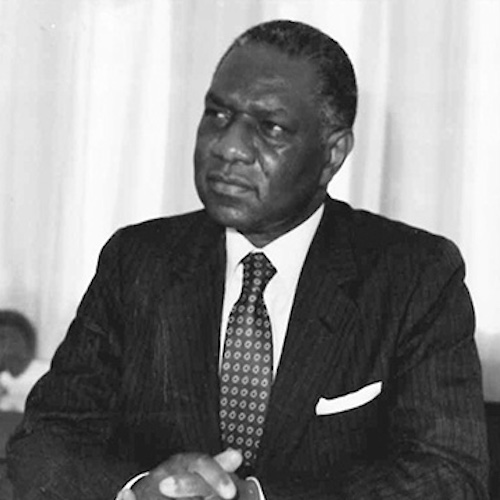
Prof. T. R. Odhiambo
President
1990-1998

Prof. Gideon. B. Okelo
Secretary General
1990-1998

Prof. Turner T. Isoun
Treasurer
1994-1998

Prof. Ahmed Hassanali
Treasurer
1990-1993

Prof. Abed Peeraly
VP: Eastern Africa
1997-1998

Prof. Paul Nkwi
Regional Rep: Central Africa
1997-1999

Prof. Suzanne Ratsimamanga
Regional Rep - Eastern Africa
1990-1997

Prof. Mohammed Hassan
VP: Eastern Africa
1991-1994

Prof. Attia A. Ashour
VP: Northern Africa
1990-1998

Prof. Lydia Makhubu
VP: Southern Africa
1990-1998

Prof.Rufus Adegboye
VP: Western Africa
1997-1998

Dr. Victor Doulou
VP: Western Africa
1990-1995

Prof. T. R. Odhiambo
President
1990-1998

Prof. Mahdi ElMandjra
Regional Rep: Northern Africa
1992-1993

Prof. J.S Nkoma
Regional Rep: Southern Africa
1990-1991

Prof. Ebenezar Laing
Regional Rep: Western Africa
1994-1995

Prof. T. R. Odhiambo
President
1985-1989

Prof. Samson Gombe
Secretary General
1987-1989

Prof. Samson Gombe
Treasurer
1987-1989

Dr. Christopher Magadza
VP: Eastern Africa
1987

Prof. Attia A. Ashour
VP: Northern Africa
1987-1989

Prof. Raoelina Andriambololona
VP: Southern Africa
1985-1989

Dr. Akoly Nyatepe-Coo
VP: Western Africa
1985-1989

Prof. J.S Nkoma
Regional Rep: Southern Africa
1985-1990

Bio